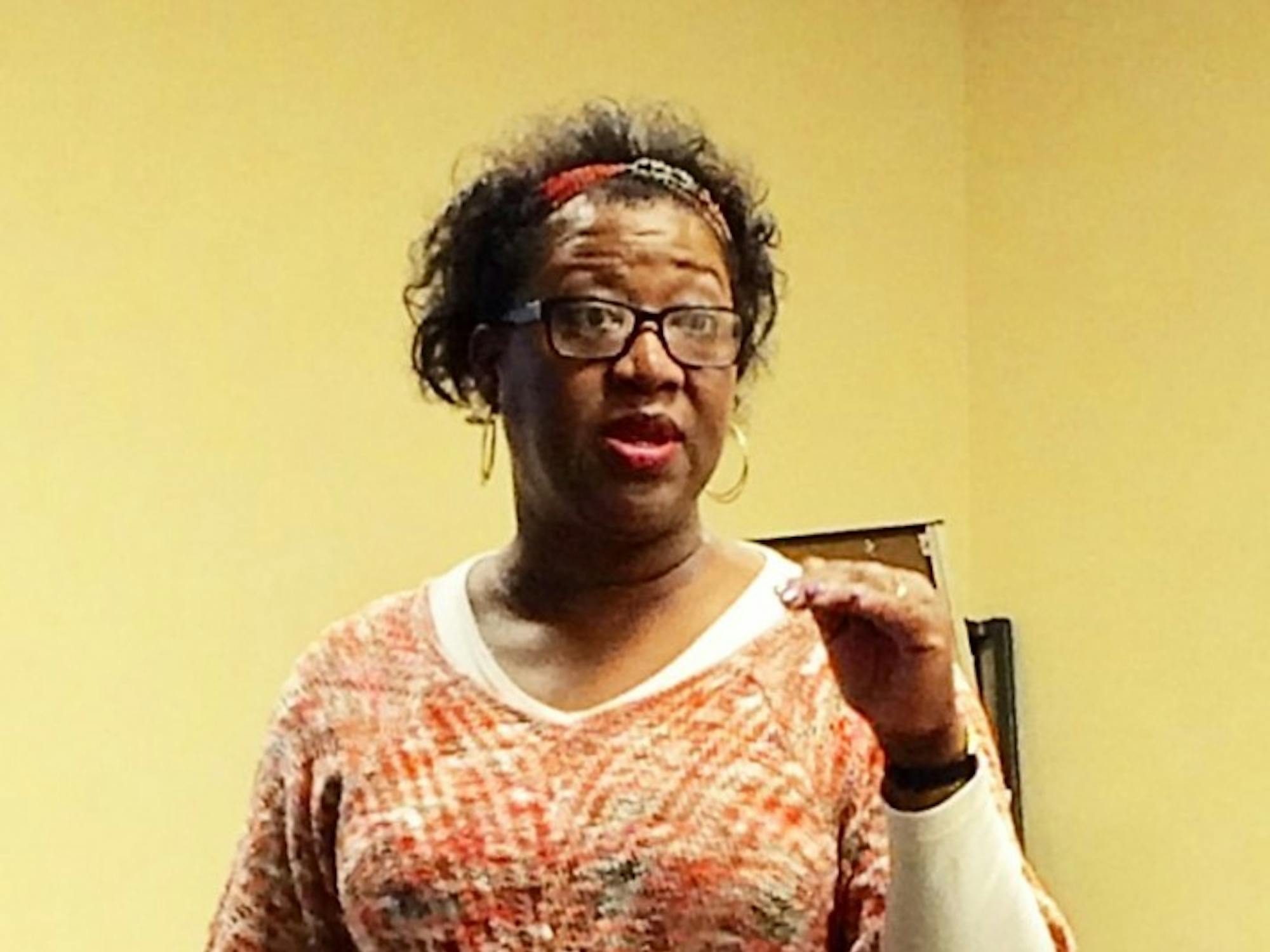Eastern Michigan University’s Advising and Career Development Center and Peer Engagement Coach Program teamed up to host From College to Career, a workshop to help students build effective resumes and cover letters to send to employers on Thursday, April 7 in McKenny Hall.
Lorraine McKnight, senior career coach, lectured on the components of a well written resume and how to incorporate community, campus and other involvements on a resume. She also taught students how to use handshake.com, a platform where employers can share employment opportunities with EMU students and alumni.
Bre McKamie, graduate assistant and event organizer, first became inspired to help other students on their future career path after receiving help from her involvement with Peer Engagement Coach.
“This is a good opportunity to help students. We decided to create workshops that are engaging, it helps you find a job. I want students to be able to figure out how their student involvements and other jobs that they might feel are irrelevant such as fast food or customer service jobs translate into their resume,” she said.
McKnight explained the ultimate goal of a resume to students.
“A resume tells the employer that you are going to meet their goals. It is a communication device to get the interview. If you think about this before creating one, it will be more effective,” she said.
She encouraged students to create a profile on the professional networking social media site LinkedIn. She said that it is a smart way to start researching and planning for success.
She also encouraged students to quantify their experiences. She said that employers don’t want to know that you showed up every day but that you will get the job done. You want to brag about how many great things you accomplished.
She used the example of if you were a salesperson, you would want to tell how many sales goals you’ve hit. If someone worked for their local newspaper, they should say how many articles they wrote per-week. Employers want to know that you went above and beyond.
She also touched on resume formats. She explained the difference between chronological and functional resumes and when to use them. Chronological resumes list jobs and accomplishments in reverse order with the most recent at the top and older accomplishments following. A functional resume highlights your abilities and skills accomplished on the job instead of a chronological work history.
She said that when students are in college, it is better to use a chronological resume because they don’t have a lot of consistency in employment. When you are older and more experienced, showing consistency in employment is more important. A functional resume would be more fitting.
She went over the content of an effective resume. She stressed the importance of adding key words to your resume that employers might look for. She said that the more key words that you have, the more likely you will get the interview. It will make you more marketable.
She said that you should list awards and honors which highlight strong academic accomplishments such as dean’s list, scholarships, and Honor Society but don’t list high school achievements unless you did something really prestigious.
Abriya Thomas, a freshman majoring in psychology, really enjoyed the presentation and learned something new.
“I learned a lot! I’m going to make use of it when I go back to Ohio and look for jobs. I loved her enthusiasm and stories, it made it interesting,” she said. “I didn’t know that my high school stuff didn’t really matter unless I had a major accomplishment, that was the most shocking. I heard about quantifying your value but it was still sort of new.”
Letia Austin, a nursing major, found the workshop very insightful.
“I learned a lot about the cover letter. It makes you look better even if you have a resume. I really didn’t know that a lot of people really used LinkedIn in that way,” she said. “I enjoyed learning about the different types of resumes.”









